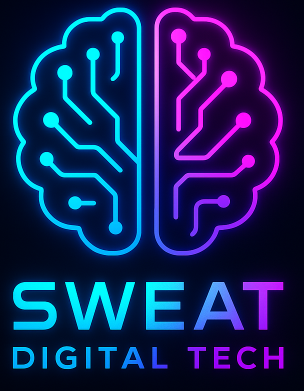Let’s set the scene. Dave—your mate who once tried to host a Minecraft server on a Raspberry Pi and accidentally took down your Wi-Fi for a week—is at your door. He’s panicking. His LinkedIn feed is all layoff memes and “AI ate my job” posts, and he’s convinced his IT Infrastructure Engineer role is heading the way of the dodo. “What certs do I even need in 2025?” he asks, clutching a lukewarm can of Monster like it’s a lifeline.
Relax, Dave. Let’s talk.
The 2025 IT Job Market Isn’t Dead—It’s Just Evolved
First off, let’s kill the drama. The IT job market isn’t dead; it’s just playing hard to get. Companies aren’t hiring generalists who can “fix printers” anymore. They want specialists who can wrangle hybrid clouds, outsmart ransomware gangs, and explain Kubernetes to a CFO without inducing a coma.
But here’s the kicker: Certifications are your golden ticket. They’re the difference between being “Dave from IT” and “Dave, the Cloud Security Wizard Who Commands £70k Salaries.” Let’s break down the certs that’ll make recruiters slide into your DMs faster than a ChatGPT-generated pickup line.
1. Cloud Certs: Because On-Prem Servers Are So 2015
If you’re still configuring physical servers, I hate to break it to you—AWS, Azure, and Google Cloud ate your lunch. Hybrid and multi-cloud setups dominate 2025, and companies need engineers who speak fluent cloud.
AWS Certified Solutions Architect – Associate
- Why it matters: AWS still owns 31% of the cloud market . This cert proves you can design scalable, secure systems on AWS—like deploying fault-tolerant architectures or optimizing costs (because CFOs love saving pennies).
- Cost: ~$150 .
- Pro tip: Pair it with AWS Certified DevOps Engineer to automate deployments like a pro.
Microsoft Certified: Azure Solutions Architect Expert
- Why it matters: Azure’s growing like crazy, especially in enterprises married to Microsoft ecosystems. This cert screams, “I can migrate your legacy systems to the cloud without breaking everything” .
- Cost: ~$165 per exam (you need two) .
- Dave-level analogy: Think of it as learning to drive a Tesla after years of riding a bicycle.
Google Professional Cloud Architect
- Why it matters: Google Cloud’s AI tools are stealing the spotlight. This cert lets you design AI-driven solutions—like predicting server failures before they happen .
- Cost: ~$299 .
2. Security Certs: Because Hackers Don’t Take Lunch Breaks
Cybersecurity isn’t optional anymore. With ransomware attacks up 300% since 2023 , companies need engineers who can build Fort Knox in the cloud.
Certified Information Systems Security Professional (CISSP)
- Why it matters: It’s the gold standard for security pros. CISSP-certified roles pay a median of $168k , and you’ll learn to design bulletproof security frameworks.
- Catch: Requires 5 years of experience. But hey, Dave, you’ve been in IT since 2020—time to level up!
Certified Ethical Hacker (CEH)
- Why it matters: Hackers aren’t just hooded figures in movies—they’re bored teens in Estonia. CEH teaches you to think like them, find vulnerabilities, and patch ’em fast .
- Cost: ~$900 .
- Bonus: You get to say “I’m a certified hacker” at parties. Instant credibility (or a FBI watchlist).
CompTIA Security+
- Why it matters: Perfect for beginners. It covers basics like encryption, network security, and threat detection. Think of it as “Cybersecurity 101” but with a fancy diploma .
- Cost: ~$392 .
3. Networking Certs: Because the Internet Isn’t Magic (Mostly)
Networking isn’t dead—it’s just gone wireless, SD-WAN, and really complicated.
Cisco Certified Network Professional (CCNP) Enterprise
- Why it matters: Cisco still runs 65% of corporate networks. CCNP teaches advanced skills like automation and network security—because manually configuring routers is so 2010 .
- Cost: ~$300 per exam (two exams required) .
CompTIA Network+
- Why it matters: Vendor-neutral and beginner-friendly. It’s your ticket to understanding subnetting, VLANs, and why the Wi-Fi dies every time Dave microwaves his burrito .
- Cost: ~$358 .

4. DevOps & Automation: Because Manual Work is for Suckers
If you’re not automating, you’re obsolete. DevOps engineers earn 22% more than traditional sysadmins , and here’s how to join them:
Certified Kubernetes Administrator (CKA)
- Why it matters: Kubernetes runs 78% of containerized apps . This cert proves you can orchestrate containers like a maestro—scaling apps, fixing crashes, and making DevOps teams adore you.
- Cost: $395 .
AWS Certified DevOps Engineer – Professional
- Why it matters: Automate CI/CD pipelines, manage infrastructure as code (Terraform, anyone?), and deploy updates faster than Dave can say “Why’s the server on fire?” .
- Cost: $300 .
5. Wildcard Certs: Because Sometimes You Gotta Specialize
Certified Blockchain Professional (CBP)
- Why it matters: Blockchain isn’t just crypto—it’s securing supply chains, healthcare data, and voting systems. CBP teaches you to build decentralized apps (dApps) that even your crypto-bro cousin can’t hack .
- Cost: ~$1,500 .
Linux Professional Institute Certification (LPIC-1)
- Why it matters: Linux runs 90% of the cloud. LPIC-1 certifies you can navigate the command line like Neo in the Matrix .
- Cost: ~$200 .
The Bottom Line: Certifications Are Your Armor in the 2025 Hunger Games
Look, Dave—2025’s job market isn’t “dead.” It’s just hyper-competitive. Companies want engineers who can juggle cloud migrations, ransomware defenses, and Kubernetes clusters while explaining it all to the C-suite.
Your action plan:
- Pick 2–3 certs that align with your niche (cloud + security = 💰).
- Grind labs and projects—certs without hands-on experience are like a Tesla with no battery.
- Network like your career depends on it (because it does). Join DevOps Discord groups or hit up local tech meetups.
And hey, if all else fails, we can always start that Raspberry Pi repair shop. ☕
Sources: UniNets.com, Ascend Education, CIO.com




